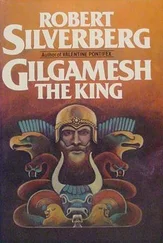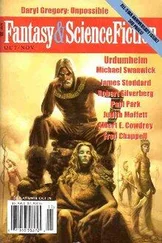After Turimel there was this one and that one and the other one, but my soul had hardened from its wound and I never spoke of sealing with any of them, and I never stayed with any of them long enough for them to hatch the idea themselves. Very likely they all knew I was bound for the Wall anyway. In every year-group there are certain ones whose Wallward destiny is known to all. Thrance was one such, the year when I was twelve. And I was another. People said they could see the mark of the Wall on me. It was the star-dream that had shown it to them, the dream which the whole village dreamed the same night. I searched for the mark in my mother’s reflecting-glass, but I could never find it. I knew it was there, though. I had no doubt.
* * *
The beginning of my sixteenth year arrived. On the tenth of Orgulet a messenger of the House of the Wall brought me the traditional sheet of elegantly lettered parchment, ordering me to report, along with all the other members of my year-group, to the assembly-place known as the Field of Pilgrims. At last my candidacy was at hand.
I remember the day well. How could I not? Four thousand two hundred fifty-six of us: not the biggest year-group that had ever been, but not the smallest, either. Ekmelios was so hot that day that the sky sizzled. We formed forty-two lines of one hundred on the velvety red grass of the Field of Pilgrims, and those who were left over made up a line of just fifty-six. I was in the short line: I took that as a somber omen. But Traiben, standing not far away in another line, winked and grinned at me as if to tell me that everything was going to be all right.
Now came the terrifying hour of First Winnowing, which I dreaded more than death itself.
Of all my four years as a candidate, nothing was worse than First Winnowing. I trembled like a leaf in the wind as the Masters of the House of the Wall moved silently among us, pausing here and there in the rows to tap candidates on the shoulder and thus to tell them that they were dismissed from the competition.
Winnowing can fall on anyone, like a lightning-bolt, and there is no more appeal from it than there is from lightning. The Masters alone know the reasons why they decide to end a candidacy, and they are under no obligation to reveal them.
That was why I feared this moment so much. Because I was young and ignorant, I thought of First Winnowing as a process controlled by sheer whim and impulse, or even by private grudge, and therefore one that took no account of the merit that I was certain I possessed. Had I done something years ago to annoy or offend a Master, which had stuck in his memory like a cinder in the eye? Why, then, he would tap my shoulder and all would be over for me with that tap: no Pilgrimage for Poilar, no ascent of the Wall, no view of the mysteries of the Summit. Not even the omen of my star-dream would matter, if someone wanted to tap me out. Nor would my descent from the First Cumber help me. There are very few members of the House of the Wall who don’t claim descent from Him; and even if half of them are lying, that still leaves a great multitude in whose veins His blood flows. So Climber-blood is not an automatic ticket to the Pilgrimage. Was I standing with one shoulder higher than another, and was that bothersome? Tap. Was the glint of my gaze or the set of my jaw too arrogant? Would the fact that one of my legs was lame count against me, despite all I had done to compensate for that accident of birth? Tap. Tap. Was some Master’s knee aching that morning, making him irascible? Tap. And out goes Poilar.
As I say, I was young and ignorant then. I had no understanding of the real purpose of Winnowing.
And so I stood as stiff as a tree, trying not to tremble, as the Masters moved among us. Tap! and Moklinn was gone, the tall graceful boy who was the finest athlete the village had seen since the great days of Thrance. Tap! and the simpleton girl Ellitt was dismissed. Tap! and there went Baligan, the younger son of the head of the House of Singers. Tap! Tap! Tap!
What was the criterion? Casting Ellitt aside I could understand, for her mind was like a child’s, and she would perish quickly on the Wall. But why tap splendid Moklinn? Why tap Baligan, whose soul was as pure as a mountain stream? So it went, the tap falling upon some obvious choices for culling and on some of the finest young people of the village. I watched the tapped ones drift away, looking stunned. And I waited in a chill of fright as the Master who was tapping in our line made his unhurried way down the rank toward me. He was Bertoll, my mother’s oldest brother. All the Masters were men of my own family: it could not be helped, I was a member of Wallclan. And so they all knew of my obsession with the Wall. Unwisely, rashly, boyishly, I had told everyone again and again that I meant to see the Summit. They had merely smiled. Had I angered them with my boastfulness? Had they decided to teach me a lesson?
I died a thousand deaths in those few minutes. I wished a million million times that I had been born into any other House, that I had been a Carpenter, a Musician, even a Sweeper, so that none of the Masters would have known what was in my soul. Now Bertoll was going to tap me, purely to cut me down for my brashness. I knew he would. I was certain of it. And I vowed then and there that if he did I would kill him and then myself, before the moons rose that evening.
I stood still as stone, eyes rigid, staring forward.
Bertoll passed me by without even looking at me, and went on down the row.
Tears of relief ran down my cheeks. All my fearful sweaty imaginings had been for nought. But then I thought: What of Traiben? I had been so concerned with my own fate that I hadn’t bothered to think about him. I swung around and glanced behind me, down the line next to mine, just in time to see that line’s Master go past little scrawny Traiben as though he hadn’t been there at all and reach out to tap a great sturdy boy behind him.
“It makes no sense,” I said to him when the Winnowing was over. A hundred and eighty had been tapped; the rest of us were free to continue our candidacies. “My leg is crooked, and I irritate people because I seem so sure of myself. You can’t run a hundred paces without getting dizzy and you scare people because you’re so shrewd. Yet they let you and me pass, and tap someone like Moklinn, who’s better fitted for climbing the Wall than any three of us. Or Baligan, the kindest, most thoughtful person I know. What standards do they use?”
“That is a mystery,” said Traiben. “But one thing I know: Winnowings are meant not to punish but to reward.”
I stared at him, baffled. “What does that mean?”
“That some of us are deemed too good to be sent to the mountain.”
“I still don’t understand.”
Traiben sighed, that terrible patient sigh of his. “Look,” he said. “We send forth our Forty every year knowing that most of them are going to die on the Wall, and that those few who eventually do come back are going to be changed the way Returned Ones always are, and will simply skulk around meditating and praying forever afterward, having as little to do with the rest of us as possible. It’s a gamble that we always lose. We send them up there to learn something useful from the gods, and for one reason or another they don’t succeed. Nobody who makes the Pilgrimage is ever again going to play an important role in the life of the village. Hardly anyone has since the First Climber Himself. Agreed?”
“Of course.” We had been through all this before.
He said, “If we give our forty finest to the mountain each year, what will become of the village? Who’ll lead us? Who’ll inspire us with new ideas? We’ll lose our most talented people, year after year. We’ll breed their abilities out of the race until we’re nothing but a tribe of dullards and weaklings—And therefore certain candidates have to be held back. They have to be saved to meet the future needs of the village.”
Читать дальше












